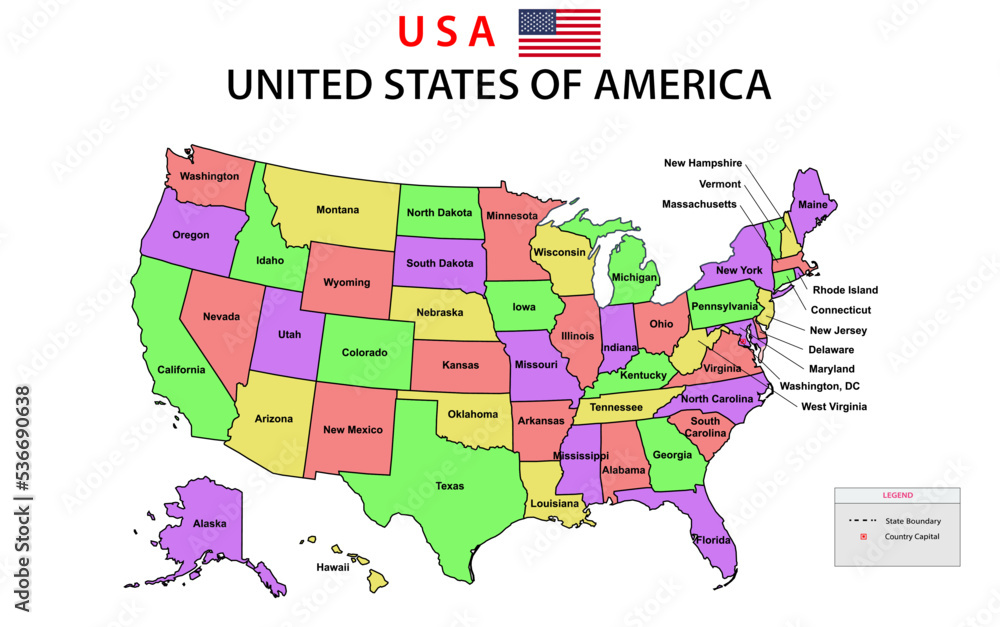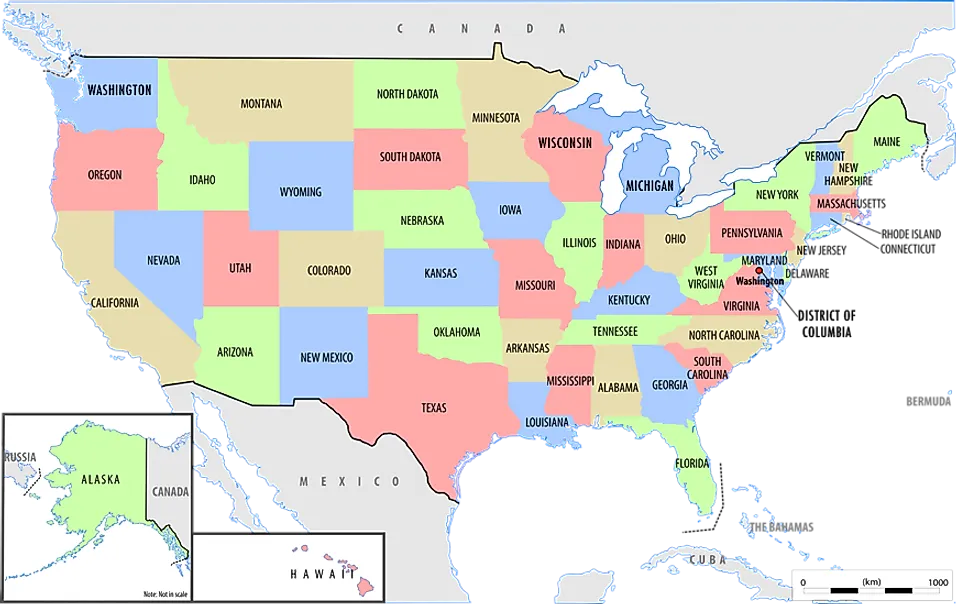US Declaring War On Iran: A Constitutional Minefield
Table of Contents
- The Constitutional Power to Declare War
- Modern Presidential Powers and the War Powers Act
- The Escalating Tensions: Israel, Iran, and the US
- Lawmakers' Efforts to Curb Presidential Authority
- The "Endless War" Conundrum and Public Sentiment
- The Nuclear Threat and National Security
- The Path Forward: Diplomacy vs. Conflict
- Conclusion: Navigating the Perilous Path
The Constitutional Power to Declare War
The foundational document of the United States, its Constitution, is remarkably clear on where the authority to initiate war resides. This is not a power granted to the executive branch, but explicitly to the legislative. This deliberate separation of powers was a core tenet of the Founding Fathers, designed to prevent unilateral military action by a single individual and ensure that such grave decisions reflect the will of the people, as represented by their elected officials in Congress. Any discussion about the **US declaring war on Iran** must begin with this fundamental constitutional understanding.Article I, Section 8: Congress's Sole Prerogative
Article I, Section 8, Clause 11 of the U.S. Constitution unequivocally assigns the right to declare war to Congress. This clause grants Congress the power "To declare War, grant Letters of Marque and Reprisal, and make Rules concerning Captures on Land and Water." This means that before the United States can officially engage in a state of war with another nation, both the House of Representatives and the Senate must pass a formal declaration. This is a solemn act, signaling a complete commitment of national resources and lives to a conflict. The intent was to ensure that such a momentous decision, with its far-reaching consequences, would be subject to extensive debate, deliberation, and a broad consensus among the nation's representatives. Without this explicit declaration, any large-scale, offensive military action would technically be outside the bounds of constitutional authority.The Historical Precedent: World War II
While the Constitution is clear, historical practice has often diverged. The last time Congress formally declared war was at the beginning of World War II, when Franklin Roosevelt was president. Following the attack on Pearl Harbor in December 1941, Congress quickly and decisively issued declarations of war against Japan, Germany, and Italy. This period stands as the most recent example of the constitutional process being fully followed for a major global conflict. Since then, despite numerous military engagements – from Korea and Vietnam to Iraq and Afghanistan – no formal declaration of war has been issued. This historical shift highlights the evolving interpretation of presidential powers and the challenges of applying an 18th-century document to 21st-century global dynamics, particularly when considering scenarios like the **US declaring war on Iran**.Modern Presidential Powers and the War Powers Act
In the decades following World War II, the role of the President as Commander-in-Chief expanded significantly, often leading to military actions without a formal congressional declaration of war. This trend has fueled a long-standing constitutional debate, particularly as the United States found itself involved in prolonged conflicts without explicit legislative approval. The tension between presidential authority and congressional prerogative becomes especially acute when discussing the potential for the **US declaring war on Iran**.Bypassing Congress: A Dangerous Precedent
While Congress has not issued a formal declaration of war since World War II, it has authorized the use of military force through a series of resolutions. Most notably, following the September 11th attacks, Congress passed the Authorization for Use of Military Force (AUMF), which has been interpreted by successive administrations to justify military actions against terrorist groups globally, far beyond its initial scope. This broad interpretation has allowed presidents to engage in hostilities without seeking specific congressional approval for each new conflict or target. This raises significant concerns, as it allows a single individual, the President, to potentially bypass Congress's constitutional role. As President Donald Trump drew the United States perilously close to war with Iran, some members of Congress worked across the aisle in an attempt to rein him in, emphasizing that no president should be able to bypass Congress’s sole power to declare war.The War Powers Act: A Limiting Factor?
In response to the perceived overreach of presidential power during the Vietnam War, Congress passed the War Powers Resolution of 1973 (commonly known as the War Powers Act). This act was intended to reassert congressional authority over military engagements. It requires the President to notify Congress within 48 hours of deploying armed forces into hostilities or situations where hostilities are imminent. It also mandates that military action must terminate within 60 days unless Congress has declared war, authorized the use of military force, or extended the period. There's an additional 30-day withdrawal period. While the War Powers Act aims to limit presidential power, its effectiveness has been debated. Presidents have often viewed it as an infringement on their executive authority and have frequently bypassed or reinterpreted its provisions. The question "What is the War Powers Act, and can it stop Trump from attacking Iran?" was a prevalent concern, highlighting its potential, yet often challenged, role in preventing unilateral military action.The Escalating Tensions: Israel, Iran, and the US
The Middle East remains a volatile region, and the complex interplay of alliances and rivalries frequently threatens to draw in external powers. Recent escalations of hostilities between Israel and Iran have brought the possibility of the United States being pulled into another "endless war" into sharp focus. The long-standing animosity between Iran and Israel, coupled with Iran's nuclear ambitions, creates a tinderbox situation where even a localized conflict could quickly spiral out of control, making the prospect of the **US declaring war on Iran** a grim, albeit distant, possibility. On the evening of June 12, Israel launched a series of major strikes against Iran. The targets reportedly included Iranian nuclear facilities, missile sites, and multiple senior military and political officials. In a televised speech, Israeli Prime Minister Benjamin Netanyahu declared success. This direct confrontation signifies a dangerous new phase in the regional rivalry. The following day, June 13, the conflict continued, raising alarms globally. The U.S. intelligence community believes that Iran is not currently seeking a direct war with the United States but that it is looking to ratchet up pressure on Israel and the U.S. However, an incident involving a Houthi drone that forced the USS Harry S. Truman to take defensive action prompted Defense Secretary Pete Hegseth to issue a direct and forceful warning to Iran, underscoring the immediate risks of miscalculation and unintended escalation.Lawmakers' Efforts to Curb Presidential Authority
The heightened tensions and the potential for unilateral presidential action have spurred lawmakers on both sides of the aisle to actively seek ways to limit the President's ability to order U.S. strikes on Iran. They emphasize that only Congress has the sole power to declare war against Iran, or any nation. This bipartisan effort underscores a shared concern about the erosion of congressional authority and the dangers of executive overreach in matters of war and peace. For instance, a U.S. senator introduced a bill to curb the President's power to go to war with Iran. The measure by Democratic lawmaker Tim Kaine comes as foreign policy hawks call on the U.S. to join Israel in attacking Iran. This resolution specifically requires that any hostilities with Iran must be explicitly authorized by a declaration of war or a specific authorization for the use of military force. Crucially, it would not prevent the United States from defending itself from imminent attack, striking a balance between preventing unilateral offensive action and allowing for necessary self-defense. This legislative push reflects a growing sentiment among some lawmakers of both parties who say they want a say in whether the U.S. gets involved in the conflict between Iran and Israel. They firmly believe that "the ongoing war between Israel and Iran is not our war," and even if it were, "Congress must decide such matters according to our Constitution."The "Endless War" Conundrum and Public Sentiment
The American public has grown increasingly weary of prolonged military engagements in the Middle East. The experiences in Iraq and Afghanistan, which spanned decades and cost trillions of dollars and thousands of lives, have left a deep imprint on the national psyche. The phrase "endless war" has become synonymous with interventions that lack clear objectives, exit strategies, and broad public support. This sentiment significantly influences the political calculus surrounding any potential for the **US declaring war on Iran**. Lawmakers are acutely aware of this public fatigue. The idea of being "pulled into another endless" conflict resonates strongly with constituents who have witnessed the human and financial costs of previous interventions. There is a growing consensus that such grave decisions should not be made by a single individual or a small group of advisors, but rather through the deliberative process enshrined in the Constitution. The lack of a formal declaration of war for past conflicts has often been cited as a reason for their protracted nature and declining public support. For many, the constitutional requirement for congressional approval is not just a legal formality but a vital safeguard against impulsive or ill-conceived military adventures that could drain national resources and further destabilize an already fragile region.The Nuclear Threat and National Security
A significant driver of international concern regarding Iran is its nuclear program. While Iran maintains its program is for peaceful energy purposes, many nations, including the U.S. and Israel, suspect it aims to develop nuclear weapons. The prospect of an Islamic Republic of Iran possessing nuclear weapons is seen as a grave threat to regional stability and global security. This concern underpins many of the calls for a robust U.S. posture towards Iran, and for some, even justifies the consideration of military options, although the legal and practical hurdles to the **US declaring war on Iran** remain substantial. A joint resolution to authorize the use of United States armed forces against the Islamic Republic of Iran for threatening the national security of the United States through the development of nuclear weapons has been considered by Congress. This type of resolution, while not a formal declaration of war, represents a specific authorization for military force, which is the closest Congress has come to authorizing major conflicts since WWII. The intelligence community's assessment that Iran is not currently seeking a direct war with the United States but is looking to ratchet up pressure on Israel and the U.S. provides a nuanced picture. It suggests that while the nuclear issue is a critical concern, Iran's immediate strategy might involve proxy actions and regional influence rather than direct confrontation, complicating any decision-making process for the U.S.The Path Forward: Diplomacy vs. Conflict
Given the immense risks associated with military conflict, diplomatic solutions are almost universally preferred as the primary means to address tensions with Iran. The complexities of the situation demand a multifaceted approach that combines robust diplomacy, economic pressure, and credible deterrence. The potential for the **US declaring war on Iran** is a scenario that policymakers aim to avoid, recognizing the catastrophic consequences such a conflict would entail for the region and beyond. Engaging in direct negotiations, exploring avenues for de-escalation, and working with international partners to contain the nuclear threat are critical components of a non-military strategy. However, the path to diplomacy is often fraught with challenges, requiring significant political will, patience, and a willingness to compromise from all parties. The ongoing "updates on the rise of political violence in the U.S., Israel, and Iran" underscore the fragility of the current geopolitical landscape and the urgent need for stable, long-term solutions that prioritize peace over confrontation. The debate between those who advocate for a strong military deterrent and those who prioritize diplomatic engagement continues, shaping the contours of U.S. foreign policy in the Middle East.Conclusion: Navigating the Perilous Path
The question of the **US declaring war on Iran** is not merely a hypothetical exercise; it is a profound constitutional and geopolitical challenge. The U.S. Constitution clearly vests the power to declare war in Congress, a deliberate check on executive power designed to ensure that such a grave decision reflects the collective will of the nation. However, historical precedents and the realities of modern warfare have often seen presidents act unilaterally, leading to ongoing debates and legislative efforts to reclaim congressional authority. As tensions escalate between Israel and Iran, the United States finds itself in a precarious position, balancing its strategic interests with the imperative to avoid another costly and potentially devastating conflict in the Middle East. Lawmakers are actively working to ensure that any decision to engage in hostilities with Iran is made constitutionally, through the deliberative process of Congress, rather than by presidential decree. The memory of "endless wars" weighs heavily on the public and policymakers alike, reinforcing the need for caution and a preference for diplomatic solutions. The path forward is fraught with challenges, requiring careful navigation between deterrence and de-escalation, and a steadfast commitment to constitutional principles. It is imperative for citizens to remain informed about these critical discussions, as the decisions made today will undoubtedly shape the future of global security. What are your thoughts on the balance of power between the President and Congress in matters of war? Share your perspectives in the comments below, and consider sharing this article to foster a broader understanding of this vital constitutional debate.- Isreal Declares War On Iran
- 1953 Iran
- Iran Reza Shah Pahlavi
- Us Dollar To Iran
- Does Iran Have An Air Force

USA Map. Political map of the United States of America. US Map with

United States Map Maps | Images and Photos finder

Mapas de Estados Unidos - Atlas del Mundo